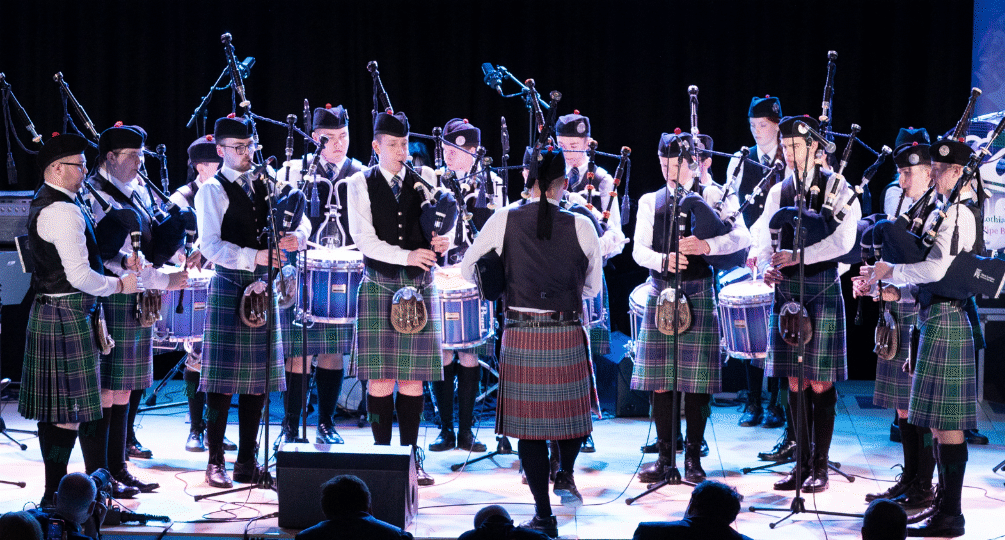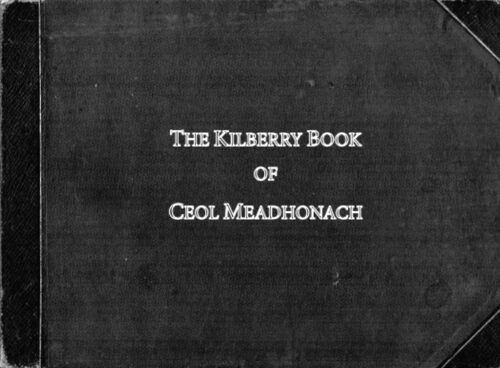
On request, the Scottish Schools Pipes and Drums Trust (SSPDT) have supplied figures regarding instrumental teaching in schools. It follows the furore two weeks ago over comments by a Head of Education in Ayrshire saying she would rather have pupils ‘on the tools’ than learning music.
The 2024 figures show almost 66,000 Scottish schoolchildren receiving music instruction, demonstrating the ongoing appeal of these lessons, and likely reflecting the impact of the removal of fees in 2021.
Such is the interest that there are waiting lists in some local authority areas. According to the survey Highland Council had around 500 pupils on their list and Angus Council 258. Renfrewshire Council said only around one third of those interested could be provided with lessons.
A handful of local authorities reported sponsorships to help cover costs or provide additional places including:
- Aberdeenshire Council were loaned bagpipes from SSPDT.
- The Argyllshire Gathering Trust donate £50,000 each year to support piping tuition in Argyll and Bute.
- East Ayrshire Council was awarded £10,000 by SSPDT as a final instalment of a pre-Covid grant.
- Western Isles Council was awarded £10,000 by the MacAuley Trust for drumming tuition.
- £25,000 per year for three years has been received by Inverclyde from the SSPDT and The Beatrice Foundation to develop pipes and drums.
- SSPDT, Carrick Futures Small Grants, and Youth Music Initiative helped an additional 23 pupils learn pipes and 42 drums as part of the Girvan Youth Pipe Band project.
Only three local authorities could provide tuition to all interested pupils. Although this reflected the service’s popularity, it also pointed to a lack of teachers. The number of full time music instructors grew again in 2024, but at a substantially slower rate than pupil numbers rose and remained below 2013/14 levels.
There were 33 piping tutors in 2015 and 39 in 2024. In drumming the figures were 5 in 2015 and 15 today. Strings were the most commonly taught instrument in twenty areas, but in Argyll and Bute and the Western Isles, pipes were the most popular.
The SSPDT also supplied figures to show that youngsters learning pipes and drums were more likely to to outperform classmates in mainstream subjects.
A 10 year study centred on pupils who took part in a piping programme at Preston Lodge High School in Prestonpans, East Lothian.
78 pipe band members between 2014-2024 were tracked from final exams through to higher education and employment and all had better outcomes that the national averages. Key findings:
- 52% of pipe band members attained five or more Highers, compared to 39% nationally and 27% overall at Preston Lodge.
- 41% left school with one or more Advanced Highers, compared with the national average of 18.7%.
SSPDT Chief Executive Lindsay MacKenzie said: ‘This study proves beyond doubt that pipe bands at school can really help bridge the attainment gap at a time when national statistics show the gap to be widening.’
Kilberry Book of Ceòl Meadhonach – Middle Music – digital book
This book was compiled and edited by Captain John Campbell, Kilberry, and his more famous son Archibald.
Published in 1909, the year of Campbell senior’s death, the book is a compendium of old Gaelic airs and song tunes. Not piobaireachd but not the rigid slow march either.
There are 43 tunes each with an historical note and, as one would expect with a Kilberry production, an erudite Introduction viz:
‘The settings are the best that the editors have heard, or in the airs which they have adapted, the best that they could make. Where a song has no second part they have added what they consider an appropriate variation. Otherwise they have only diverged from the air as they have heard it sung when forced to do so by the exigencies of the pipe scale.’
















